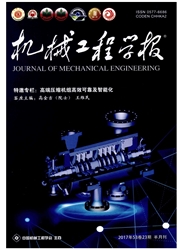

 中文摘要:
中文摘要:
数学模型的精度特性和稳健性特性对数控机床热误差补偿技术在实际中的实施性影响不容忽视。对数控加工中心关键点的温度和主轴z向的热变形量采用多种算法建立了预测模型,对不同算法拟合精度进行分析。同时进行全年热误差跟踪试验,获得了机床在不同环境温度和不同主轴转速的试验条件下的敏感点温度和热误差值。以此为基础,对各种预测模型的预测精度进行比较验证不同模型的稳健性。结果表明,多元线性回归算法的最小一乘、最小二乘估计模型以及分布滞后模型在改变试验条件时预测精度下降,而基于支持向量回归机原理的热误差补偿模型仍能保持较好的预测精度,稳健性强。这为数控机床热误差补偿模型的选择提供了具有实用价值的参考,具有很好工程应用性。
 英文摘要:
英文摘要:
The accuracy characteristics and robustness properties of mathematical model are significant, and its implementation impact of thermal error compensation of computer numerical control(CNC) machine tool technology in the practical cannot be ignored. The temperature of sensitive points and thermal error of the spindle in z direction are measured. Using some algorithms to establish prediction models, and fitting accuracy of different algorithms are analyzed. The temperature values of sensitive points and the thermal error in the experimental conditions of different ambient temperatures and different spindle speeds are measured. By comparing the prediction accuracy of various prediction models under different experimental conditions verify the robustness of the models. Experimental results show that the prediction accuracy of multiple linear regressions of least squares and least absolute estimation methods and distributed lag model is declined and their robustness are poor while support vector regression model has good prediction accuracy and its robustness remains strong when changing the experimental conditions. The robustness analysis of different models provides a useful reference for the thermal error compensation model selection of CNC machine tools and has good engineering applications.
 同期刊论文项目
同期刊论文项目
 同项目期刊论文
同项目期刊论文
 期刊信息
期刊信息
